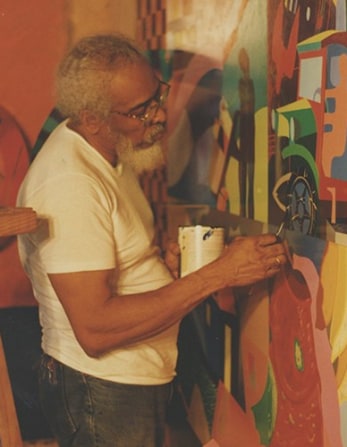
Thursday-Saturday 12-6PM
Sunday-Wednesdy CLOSED
The Helis Foundation John Scott Center is an interactive gathering space that fosters dialogue and cultivates community.
Calladita te ves más bonita / Be Pretty and Shut Up is an exhibition highlighting Carmen Mariscal’s new body of work, which brings to light the ongoing difficulties that women face or have faced in their lives by not being able to share their voice. Specifically, it showcases how society, either consciously or unconsciously, imposes silence or does not allow women to speak openly about certain things, like abortion, sexuality, political opinions, and more.
The body of works in this exhibition use a variety of mediums to address the gender inequality issues relevant today, as well as bringing an interactive component within the community of the exhibition’s location. In this case, a selection of five women dealing with social issues in New Orleans were brought in to participate in her ongoing series titled, Calladita te ves más bonita, comprised of impressions and statements from over eighty women around the world. Each woman was asked to put on their favorite shade of lipstick and create lip impressions on a piece of paper. The impressions were then sewn shut, reminding us that women’s voices, opinions and feelings are meant to be kept quiet. From the larger selection of eighty lip marks or “portraits”, as Mariscal states, she chose five lip marks to print in large format and “sew shut” to remind the viewer how the behaviors imposed on girls and women by society are omnipresent, consciously or unconsciously.
Additionally, the women were asked to write and record a significant phrase or memory, which they were not allowed to vocalize in their life. The compiled recordings of over eighty women from countries around the world, like: France, Mexico, United States, Morocco, Cameroon, Syria, Italy, Bulgaria, Greece and more, leave the viewer listening to a mesmerizing, almost musical composition. This sound installation can be heard while viewing the entire exhibition, reminding the viewers of the often drowned out voices women have in society.
In addition to the works on paper and recording installations, this body of work includes twelve metal-plate wall sculptures, showcasing the impressions of each lip mark as a unique piece. The etched metal plates are affixed to a mirror, which opens up like a book to reveal an engraving of a statement from that particular woman. These statements reflect, like a mirror, the woman whose lip mark is on the front “cover.” Mariscal’s initial inspiration for this series came from her interview with a woman from Syria, who stated that, “girls are like open books, everyone can have an opinion about them, about their lives.” In essence, each piece becomes a portrait of the woman, as well as a portrait of the viewer, as they are reflected back while reading the text, creating a sort of self-reflection onto the viewer as well.
Last, a series of photographs picturing Mariscal in a barbed wire headdress, titled Coiffes, remind us of the dichotomy and barriers between people, body, myths, reality, and countries. Headdresses typically symbolize power, in this case, they represent the borders, specifically the borders between countries, like Mexico and the United States, but also borders or divisions between humanity, the body and reality we live. This series questions the symbols of domination through headdresses. When making crowns, tufts, bridal veils and other headdresses in barbed wire their symbolism changes. Through these photographs, Mariscal seeks to question the limits between fairy tales, the symbols of power and the divisions that these hierarchies provoke.
Memory, fragility and confinement are recurring themes in her work. These themes are expressed in installations, photography, sound, and sculptures. The title of the exhibition Calladita te ves más bonita, is a well-known expression in the Latin American world, which transpires internationally. In France they have, “Soit-belle et tais-toi,” similarly in English you have, “just sit there and be pretty.” While the direct translation from Spanish to English would be something more in line with, “Quiet you look prettier,” it felt necessary to show what that Spanish phrase really means to young girls and women, which is to “be pretty and shut up.” It would be naïve to say that this phrase no longer exists in today’s society when so many women continue to be oppressed in their personal and professional lives. While it is true that more women have successful leadership roles today, misogyny is still very present in many of our daily interactions. This can be evidenced in the current movement of strict abortion laws sweeping the United States, and the inevitable fight to overturn Roe V. Wade, a fight which women have been battling since the Feminist movement of the 70s. This exhibition seeks to give women a safe space to speak their truths, while also encouraging a more open society in which a dialogue can occur without fear of persecution.
Marcela Correa, Curator
New Orleans
For information on price of artworks, please email: marcelaCCorrea@gmail.com